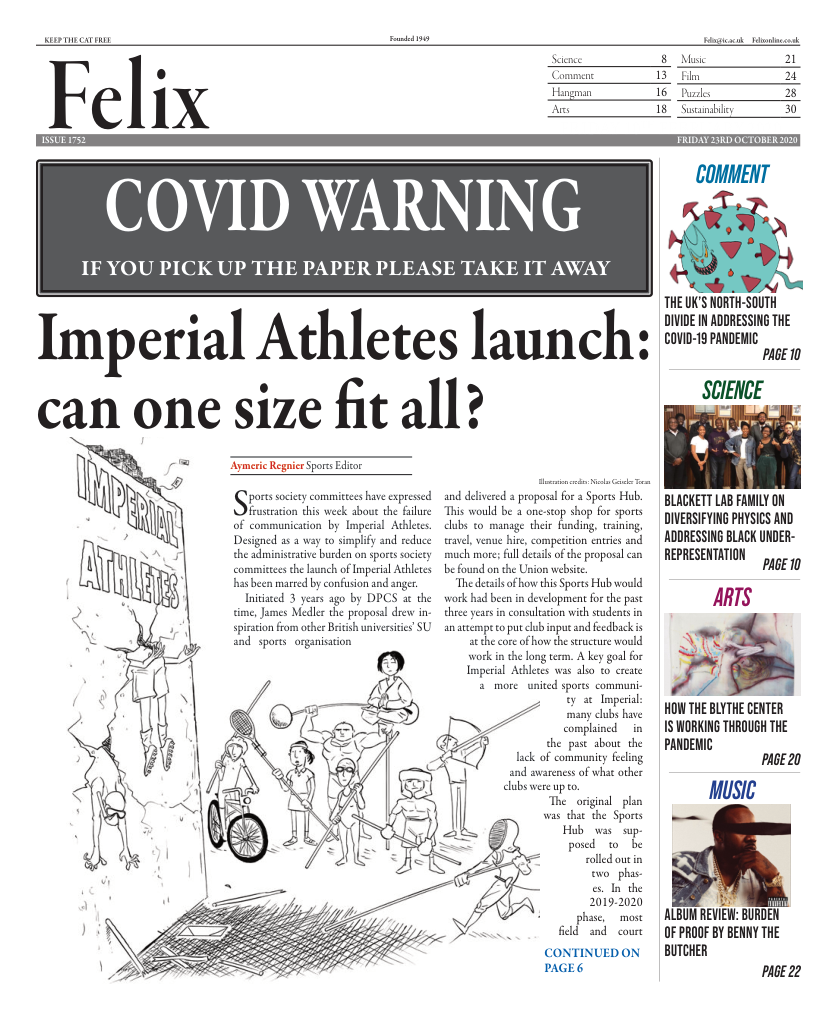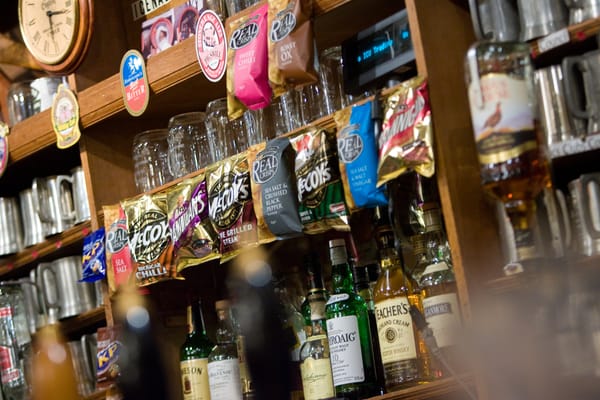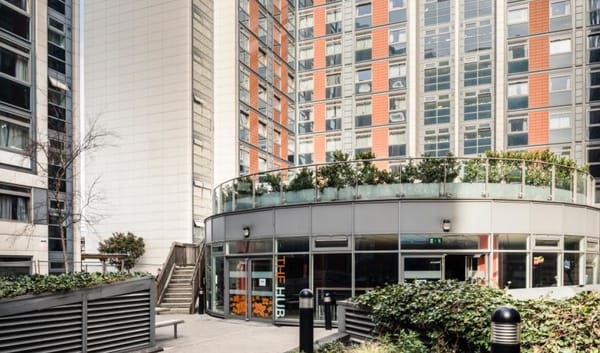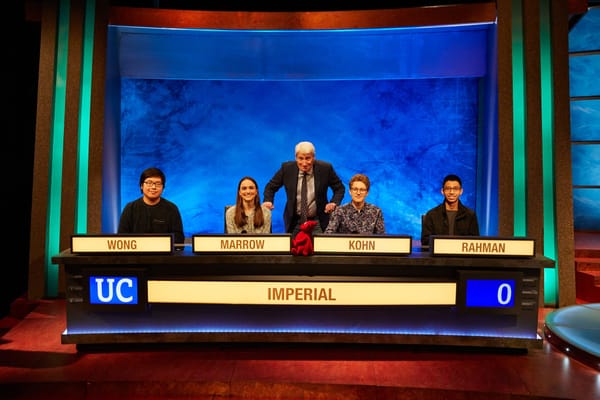Imperial Athletes launch: can one size fit all?
Designed as a way to simplify and reduce the administrative burden on sports society committees, the launch of Imperial Athletes has instead been marred by confusion and anger. Felix reports on the launch of Imperial's new sports one-stop-shop

Sports society committees have expressed frustration this week about the failure of communication by Imperial Athletes. Designed as a way to simplify and reduce the administrative burden on sports society committees the launch of Imperial Athletes has been marred by confusion and anger.
Initiated 3 years ago by DPCS at the time, James Medler the proposal drew inspiration from other British universities’ SU and sports organisation and delivered a proposal for a Sports Hub. This would be a one-stop shop for sports clubs to manage their funding, training, travel, venue hire, competition entries and much more; full details of the proposal can be found on the Union website.
The details of how this Sports Hub would work had been in development for the past three years in consultation with students in an attempt to put club input and feedback is at the core of how the structure would work in the long term. A key goal for Imperial Athletes was also to create a more united sports community at Imperial: many clubs have complained in the past about the lack of community feeling and awareness of what other clubs were up to.
The original plan was that the Sports Hub was supposed to be rolled out in two phases. In the 2019-2020 phase, most field and court sports were supposed to integrate the structure.
Once this phase had been completed the Sports Hub (now Imperial Athletes) would expand and would be open to other clubs, namely Individual and Martial Arts clubs in 2020-2021. Due to the pandemic and a reorganising of the ICU team, the transition fell behind schedule last academic year. With staff being furloughed and many activities at a standstill, less progress was achieved than desired towards the end of the academic year meaning that Imperial Athletes was not ready to launch and had to be postponed.
Out of concern for some clubs’ ability to cope financially and deliver activities to their members in this period, Imperial Athletes decided to disregard the initial timeline and include additional clubs in the structure with very little notice and guidance. This has put clubs under a lot of stress and has created a void between the two parties, which is the opposite of what was hoped to be achieved by all the hard work from both sides over the past years and months. Talking to DPCS Ross Unwin, the main considerations were that BUCS might not be running and that in-person sports activities would look very different due to restrictions. As government guidelines are likely to change frequently, Imperial Athletes wanted to be able to offer all students the best sports experience attainable during this period. Unwin admitted that the scheme was not yet ready but told Felix that he felt it was the best to launch the incomplete version and to jump in with “both feet”.
Imperial athletes have had some successes with the launch of intramural leagues led by Will Hollyer’s team at Move Imperial. With matches on Wednesdays this replaces BUCS and LUSL league matches for the time being, providing a competitive and sports atmosphere for students.
However, the policy that has drawn criticism from students is the change to how club membership is purchased. In previous years, clubs were free to set the price of their own membership and to spend membership income as they wished. Clubs also received a Union grant to support core activities.
Smaller clubs also do not have regular fixtures or expensive and distant training sessions meaning that they feel they will lose out under the new model as their normal membership price is far below the £25 of Imperial Athletes. They feel in effect that this acts as a subsidy of the larger team sports by smaller individual clubs and will dissuade students from joining their clubs.
Another frustration with the new system is that some committees feel that the new model takes power out of their hands. Ross Unwin and Imperial Athletes have argued, however, that the structure is there to support the clubs in their activities and contribute to the development of the clubs. The sports executive, ie. club committees, ACC committee, the DPCS and DPFS are still there to decide how activities are run and overall the Imperial Athletes structure is there to make the managing of the finances and organisation of these activities easier.
Unwin told Felix that even though Imperial Athletes might not have got the behind the scenes correct, they want to work with everyone, they want the project to work and most importantly they want clubs to want it to work.
Unwin also promised that he would meet in person with all dissatisfied clubs and would make them see how the new model benefited them.
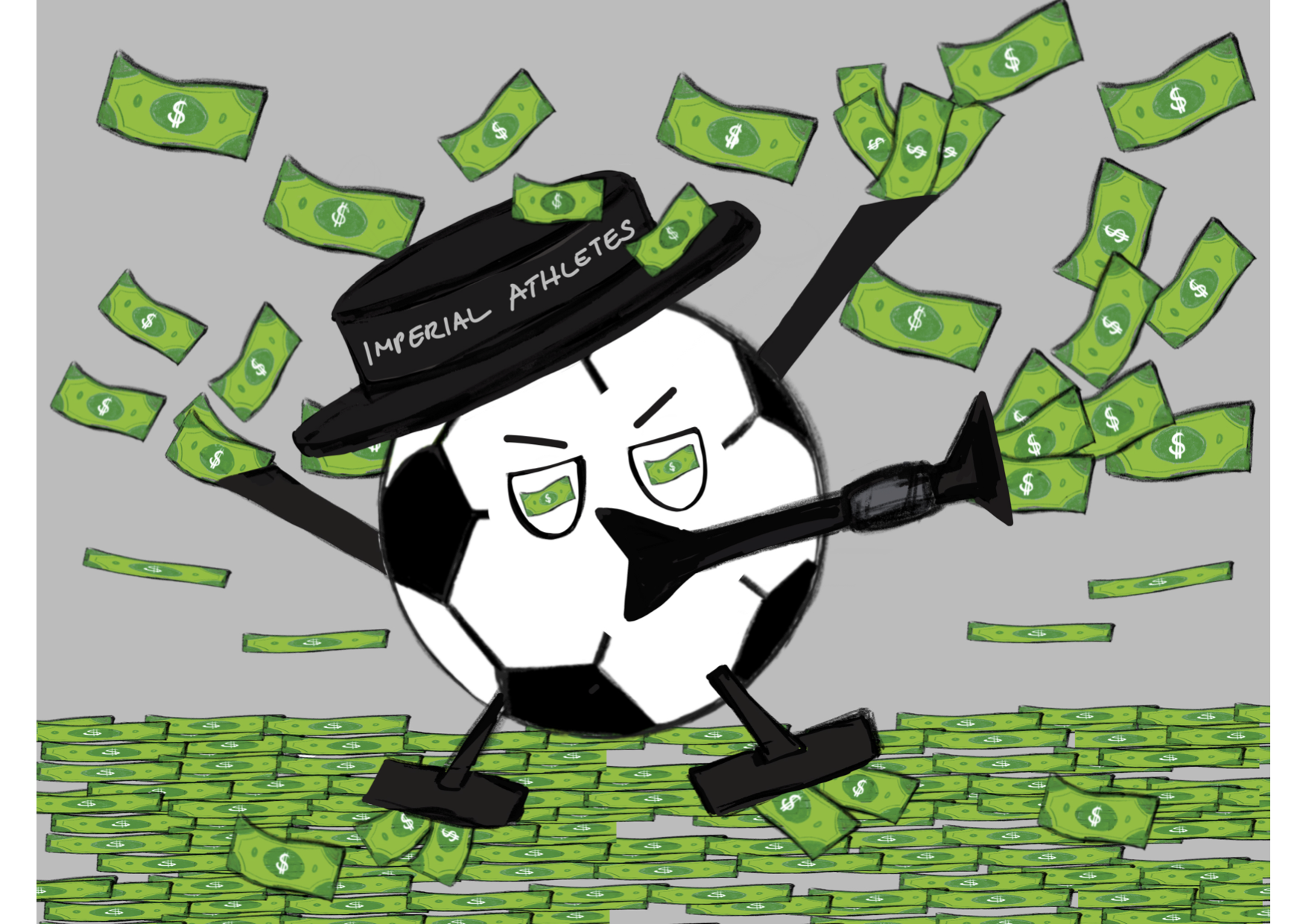


What are your clubs saying?
Speaking to different clubs has shown that there are huge differences between the way different clubs have received support to adapt to the new structure that they were all enrolled in.
IC Hockey - Harry Reynolds Hockey Chair; Caitlin Edgar Hockey Honorary Secretary
Were you prepared for the transition into the Imperial Athletes system?
Yes, we’d been aware of the work done over the past few years concerning the launch and knew it would come at some point. It was confirmed during last year that we would move into IA this term and we were given confirmation during the summer, so we had time to prepare our activities to run within the IA structure.
Does the Imperial Athletes structure appeal to you in the long term?
Definitely, even though the transition hasn’t been perfectly smooth and we are still learning about the details and these are updated regularly, we are optimistic that in the long term this will provide a one-stop shop to get support to deal with club finances, club admin and to talk to staff or sport executives that can give us more advice when we need it. The exact details of how finances will work this term aren’t perfectly clear yet but we’re confident that in the long term the Imperial Athletes structure will provide a cheaper overall experience for our members and will make it easier to run the club throughout the year.
Has Imperial Athletes provided valuable support to your teams?
Imperial Athletes so far have been great at supporting our teams. We’ve had transport for our team trainings sorted and training has been running smoothly. The launch of Imperial Leagues is also very beneficial for our members as it will keep our members active and the matches will promote the club for anyone wishing to join Hockey. Getting people training together was a concern for us, especially for our Mens’ 1st team: we’re glad Imperial Athletes have made it possible for them to train together as a team with their coach. Whilst we’re hoping their competitions resume in Winter term we’re currently focused on ensuring the team remains bonded.
IC Riding and Polo - Lily Rietbergen Riding and Polo Chair; Vita Welcome Riding and Polo VC
How aware were you before September that the launch of Imperial Athletes was taking place this term?
We had heard of the Sports Hub during the year but had received no indication we were going to be included in it this year until the week before the start of term and the Virtual Fair. No one reached out to us from IA to help us understand how we fit in, how to organise our activities for this term and promote them to new members so we weren’t quite sure what the term would look like. After reaching out to IA we were able to clarify how the club would fit in within the scheme and after this delay we have been able to run our sessions with limited disruptions due to this transition.
Do you feel like the IA structure benefits your club financially?
Our membership used to be higher than what is currently a flat fee of £25. Following an increase in riding lesson prices and a reduction in membership cost we’ve had to reduce our subsidy per lesson. However in the long term, by working with IA to optimise the running of training and competitions, we believe we can get to a point where the overall student experience is cheaper.
Do you think IA can work in the long term for Riding and Polo?
Discussions still need to happen to know how we are going to work with IA. Things that are still unclear include the sources of income: as this is something IA is going to tackle to make the running of clubs easier, we’re hoping this gets resolved quickly. As a club that has a lot of admin work throughout the year, we’re also hoping the IA structure will alleviate this stress from the committee and make the experience of running the club less demanding. IA has made substantial promises to us and other clubs, and while we are enthusiastic about the new opportunities it offers it remains to be seen whether they will deliver on these.
IC Pole and Aerial - Georgie Foot P&A Competitions Officer
When preparations for the Sport Hub launch were taking place, were you looking forward to being a part of it?
We joined the Sport sector from Arts & Ents a few years ago and as the launch was supposed to take place over 2 years, we weren’t expecting to be impacted by it before another year. However we had doubts about what it could bring to our club and still cannot see exactly what support Imperial Athletes can bring us as we simply don’t have the same requirements to run our training and competitions as other clubs.
When you were informed you would be part of IA at the beginning of term, how much support did you receive to find your place within the structure?
We were informed very close to the start of term that we had been moved to IA and weren’t contacted to help us understand what it meant for us specifically. When trying to find a way to fit within the scheme we were given two options: committing to the Imperial Athletes structure and receiving some support down the lineor claiming back the membership fees and managing our own finances. No middle-ground solution seemed to be possible so we decided to go for the second option and redistribute the £25 as lessons subsidy.
What were your main concerns for this term and what are you hoping will happen in Winter Term?
Having completed our financial planning during the summer we were surprised when we learnt the membership system had changed. We felt uneasy charging upfront £25 to members to only be able to take part in online classes. This contributed to our choice of opting out of the scheme for the time being.
We’re hoping we can run our activities and local competitions next term as closely as possible to previous years, with little influence from Imperial Athletes.
Speaking to Sport Development Manager James Perry about the launch has given us more insight on how Imperial Athletes is planning on enhancing the sports experience for students.
Prior to the launch of Imperial Athletes, what was a key obstacle to joining sports at Imperial?
There are a wide range of clubs that are advertised to freshers from the start of term with varying memberships fees offering different activities. With the high costs of university and living in London, spending up to the order of £100 on a sports club membership is a big commitment and can be daunting, especially for individuals who aren’t yet certain which club they want to dedicate most of their time outside of their degree to. Furthermore, the list of different memberships and fee systems from one club to another can be off-putting. A key long-term goal for Imperial Athletes is to make sports cheaper and more accessible throughout the entirety of what Imperial has to offer.
How will the launch of Imperial Athletes affect the support for performance athletes?
At the moment, College is running a scheme to support performance athletes with scholarships, from Bronze to Gold in accordance with the athlete’s competition level. These scholarships provide athlete support, mentoring, Strength & Conditioning, financial and training support. This scheme is led by the College so will not be changing. Until now however there was very little support for performance teams and their entries would usually be capped. With Imperial Athletes the aim is to support performance teams, enter all teams competing at BUCS Premier, Tier 1 or National championships and fund transport and accommodation for those teams.
Some clubs have managed to find their place in the structure but others haven’t. Hhow do you feel the incorporation of these clubs will progress in the future?
Imperial Athletes is there as a structure to support sports clubs. With the extension of Imperial Athletes to individual and martial arts clubs there has been more work to be done to support all clubs of the Sports Hub equally. While we may have underestimated the variance of functioning across the range of sports clubs, we appreciate the challenge that this variety of required solutions presents and are actively working on helping all clubs find their place within Imperial Athletes.
A positive outcome of this transition is that it has brought many clubs who felt isolated in the past to feel included in the sports community and to enter discussions with Imperial Athletes. The student activities development team is motivated to support such clubs and sees this as an opportunity to help them take part in development plans.
We know that change is always difficult, but we are hoping that this can be a change for the better.

